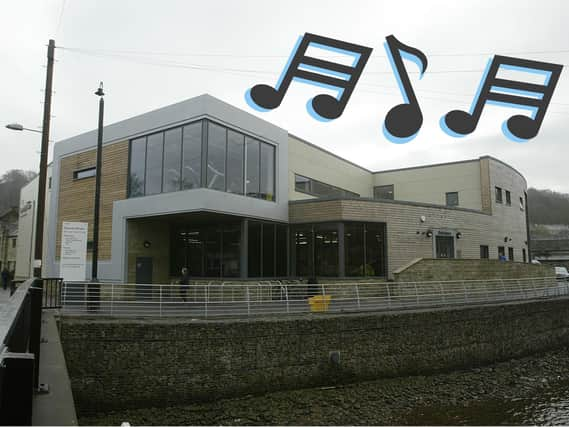Why music has been stopped in Calderdale's sport halls and pools


Customers at the borough’s sports halls, including Sowerby Bridge Swimming Pool, have found themselves changing in silence this summer following the decision to cut back on areas licensed to play music.
READ: First look at the new Halifax Leisure Centre and swimming poolIt was another example of how the council faced tough choices when savings had to be found, said Coun Susan Press (Lab, Todmorden), Calderdale Council’s Cabinet member for Communities and Neighbourhood Services, but the decision will be reviewed taking into account customer feedback.
Advertisement
Hide AdAdvertisement
Hide AdThe move has saved almost £10,000 for the council this year, she said, at a time when councils were having to budget carefully.
“As with all council services, we have reviewed all our existing contracts and operations and have had to make difficult decisions to find savings wherever we can.
“We were paying nearly £40,000 a year across all of our sports centres for music licences.
“We also pay nearly £8,000 for specific licences to run certain classes,” said Coun Press.
Advertisement
Hide AdAdvertisement
Hide Ad“On top of this a new licence has been introduced for playing TV programmes.
“We have had to reduce spend across all our centres, and removing music from pool halls, corridors, staff areas and changing rooms was one of the measures which would have the least impact on customers. This has saved £9,431.
“We will continue to review our operations, taking customer feedback into account.”
READ: Plans to demolish Halifax swimming pool to build new major car park revealedGovernment says anyone wishing to play recorded music in public or on business premises – for example on CD, on radio or via a music channel – is likely to need PRS (Performing Rights Society) and probably also a PPL (Phonographic Performance Ltd) licence.
Advertisement
Hide AdAdvertisement
Hide AdAdditionally, a PRS for Music licence also allows live music on premises such as pubs, restaurants or nightclubs.
PRS for Music collects and distributes money for the use of the musical composition and lyrics on behalf of authors, songwriters, composers and publishers.
Examples of businesses or public bodies affected includes shops and offices, hotels and cafes, gyms and social clubs.
Fees vary depending on the type of licence applied for and from which organisation. A licence is not needed to play royalty free music.
Advertisement
Hide AdAdvertisement
Hide AdBusinesses and other bodies may also need a licence to play music managed by another licensing body or collective management organisation, according to the Government’s guidelines which can be accessed by logging on to www.gov.uk